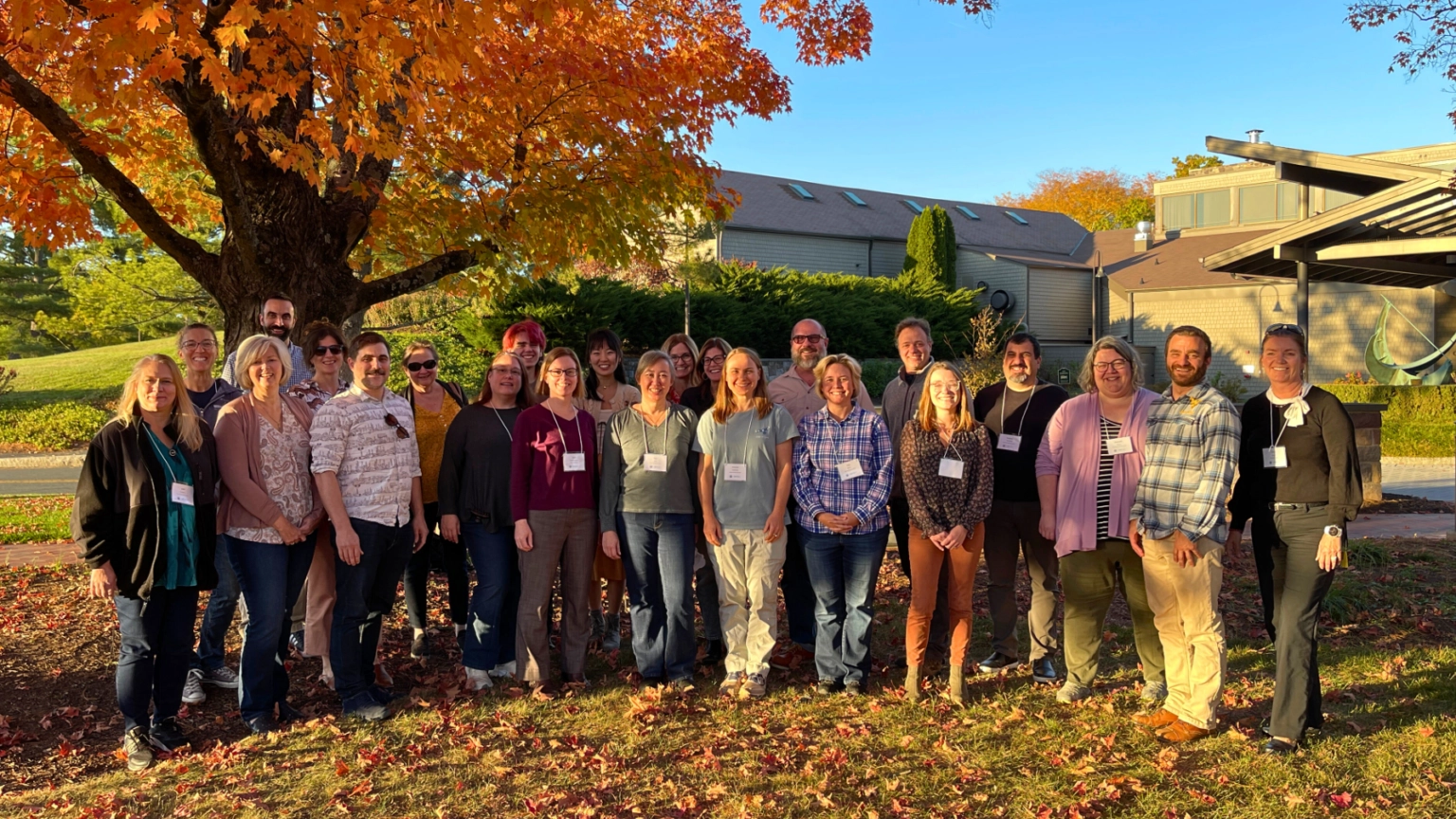Fresh off the success of a multi-institutional workshop on oceanographic data literacy, Rutgers Department of Marine and Coastal Sciences (DMCS) staff Janice McDonnell and Sage Lichtenwalner have just completed another data literacy workshop, this time in Princeton, New Jersey.
Nineteen undergraduate-level university faculty and staff were invited to the Chauncey Hotel & Conference Center on October 17-20 to update an existing cache of high-quality data literacy lesson plans and online interactives that are hosted by Rutgers DMCS and the Data Labs program.
These lesson plans and online interactives are a part of the NSF-funded OOI Data Labs Project, known as Data Labs. They are aimed at higher education faculty looking to enhance their curricula by incorporating chunks of real-time data–in this case, from the NSF Ocean Observatories Initiative (OOI).
The NSF OOI is a long-term ocean measuring network that aims to collect large amounts of continuous data, taking various types of measurements, including temperature, salinity and chlorophyll levels. This goes towards answering bigger questions about ecosystem dynamics, ocean circulation, and climate variability, among others.
“Working with these professors allows our Data Labs team to co-create high-quality lab content and resources that directly benefits, not only the professors in the room that developed it, but many other professors who teach oceanography, geology, or even data science,” McDonnell commented. “In the end, however, it is the students who benefit from all of their thoughtful and hard work.”
Based on advice from the community in a recent needs assessment, this team is focusing on incorporating coding exercises into the existing Data Labs activities. McDonnell and Lichtenwalner collaborated with faculty from Queens College, Hillsborough Community College, Stockton University and Carleton College to support the Data Labs project.
“We’ve known for over two decades that teaching with data works, but the on-ramp required to get faculty and students comfortable with data as a form of pedagogy is still a work-in-progress,” Dax Soule of Queen’s College and one of the project leads elaborated. “This is what Data Labs can contribute.”
The workshop attendees came from various two- and four-year teaching colleges from around the country. They spent most of the workshop working in self-selected teams, updating old labs and creating new ones using data from the OOI. Exciting themes, like how forest fires affect ocean chemistry and impact climate change, allow undergraduate students to be drawn in and encouraged to explore the data.
The participants had to balance building the data into effective pedagogy. They want to guide students and encourage their own self-confidence in data literacy. This means creating open-ended, guided explorations that allow other learning goals besides just getting the right answer.
“I tell my students ‘The point is not just to get the correct answer’,” said Tracy Quan of Oklahoma State University. “‘I want you to figure out how to measure the thing.’”
Of course, creating these new educator tools is not a straightforward process.
“We appreciate that the process is messy and challenging,” said Anna Pfeiffer-Herbert of Stockton University, and one of the project leads.
The workshop invitees included both experts and novices in important themes like educational pedagogy and Python coding. Starting this creative and challenging task is daunting with the heavy teaching loads and academic advising each of the participants is responsible for in their day job. However, they are committed and see the value of approaching it as a community.
“As an educator and as a scientist, I am where I am meant to be,” reflected Angelos Hannides of Coastal Carolina University.
After the workshop, all participants will keep in contact with the lead team and each other to continue developing their new educational tools. To keep abreast of new Data Labs tools and future workshops, consider signing up for the Data Labs newsletter.
Original article at Rutgers NJAES Newsroom

